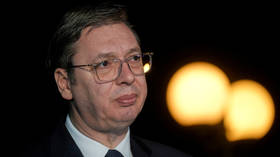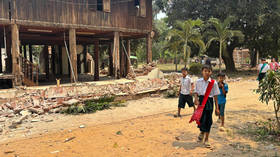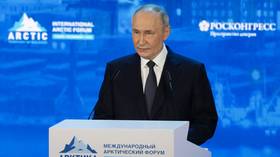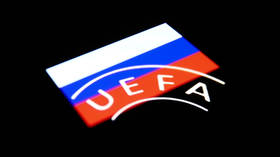EU ready to punish Kosovo
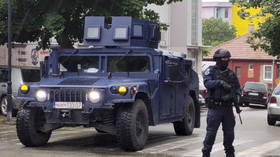
Kosovo will soon face “consequences” if its prime minister, Albin Kurti, does not backtrack on his aggressive treatment of the province’s Serb minority, European Commission foreign policy spokesman Peter Stano told reporters on Wednesday.
Among the “financial and political consequences” that Pristina could face are the suspension of high-level visits from EU officials, the withholding of EU funds, and the freezing of the bloc’s visa liberalization process with Kosovo, Stano said at a briefing in Brussels.
Stano emphasized that such measures are “not sanctions” in the traditional sense, but rather “reversible and temporary measures” designed to force Kurti into compliance.
Around half of the UN’s 193 member states do not recognize Kosovo, and the breakaway province counts on support from the US, EU, and occupying NATO forces to maintain its legitimacy. However, Kurti has faced progressively harsher condemnation from American and European officials in recent weeks, ever since he sent his ethnic Albanian security forces to crush Serb protests in the northern reaches of the province.
The protests began when local mayors in four majority Serb towns in northern Kosovo resigned last year after the authorities in Pristina announced plans to force residents to switch their Serbian identity documents for Kosovo-issued ones. The Serb population of these four towns boycotted elections in April in which four ethnic Albanian mayors won with a turnout of less than 4% and no opposition.
Violence broke out when Kurti’s forces, backed by NATO troops, installed these mayors in their offices last month. Around 50 Serb demonstrators and 25 NATO peacekeepers were injured in the town of Zvecan in a riot reportedly instigated by ethnic Albanian officers.
While the EU initially declared the elections legitimate, it has since demanded that Kurti call a fresh vote and withdraw his forces from majority-Serb towns. Stano told reporters on Wednesday that Kurti has thus far ignored these demands.
Kurti’s refusal to de-escalate has also threatened Kosovo’s relations with Albania. Kurti was scheduled to meet with Albanian Prime Minister Edi Rama in Kosovo on Wednesday, but the meeting was canceled by Rama on Tuesday. Due to the “hourly worsening of Kosovo’s relations with the entire Euro-Atlantic community, this meeting cannot be held in the anticipated format,” Rama said in a statement.
